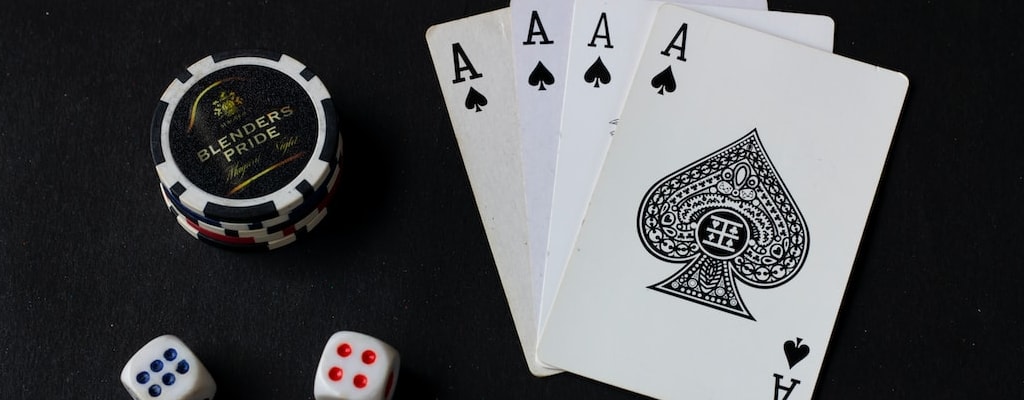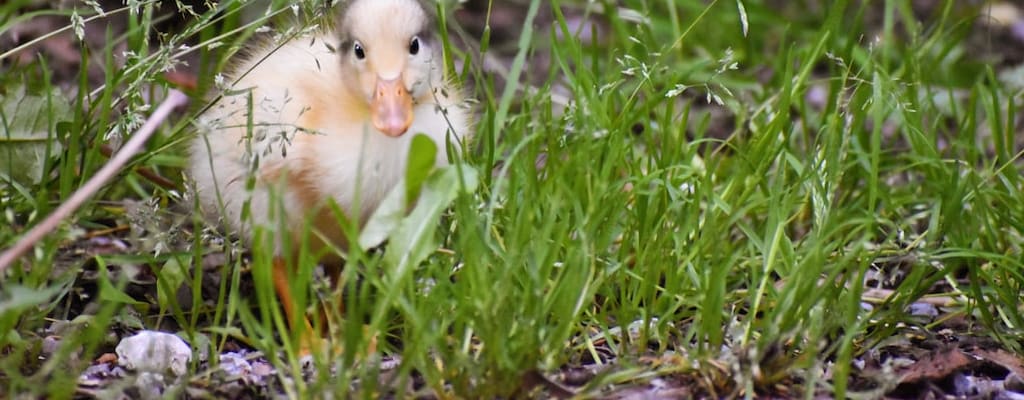lucky duckling: Idiom Meaning and Origin
What does ‘lucky duckling’ mean?
The idiom "lucky duckling" refers to someone who is fortunate or has good luck. It is often used to describe someone who finds success or achieves something positive unexpectedly or easily.

Idiom Explorer
The idiom "ride one's luck" means to depend on chance or luck, often in a risky or daring situation, rather than on one's own skills or abilities. It suggests taking advantage of favorable circumstances without having much control over the outcome.
An idiom used to describe someone or something that is highly unusual or unique; as rare as a rare animal.
The idiom "pull a rabbit out of a hat" means to do something unexpected or impossible, often used to describe performing a remarkable feat or finding a surprising solution to a problem.
The idiom "out of the chute" means to start or begin something quickly or immediately.
"Out of luck" means to have no good fortune or opportunities, often due to circumstances beyond one's control.
An idiom meaning to feel extremely happy and successful.
The idiom "on a losing wicket" means being in a situation where success is unlikely or the odds are against you.
The idiom "odd duck" refers to a person who is strange, eccentric, or unconventional compared to others. They stand out in a peculiar way and are often seen as different or unusual.
The idiom "mixed blessing" refers to something that has both positive and negative outcomes or aspects.
The Fortunate Fowl
The idiom lucky duckling is most commonly used in informal American English speech and writing. It conveys a sense of good fortune or luck, often in a playful or lighthearted manner.
The term lucky duckling combines the words lucky and duckling. Lucky means being favored by luck or chance, while duckling is a young duck.
The origin of this specific idiom is uncertain, but it is believed to have emerged in the mid-20th century and gained popularity through colloquial usage.
One possible explanation for the usage of the word duckling in this idiom could be its association with being small, innocent, or vulnerable, as ducklings are often seen as adorable creatures. By combining it with the word lucky, the idiom creates a sense of endearment or affection when expressing good fortune.
The expression is typically used to describe someone who experiences unexpected or fortunate circumstances, often in a way that elicits sympathy or admiration from others. It can be used to refer to both people and situations.
For example, one might say, "You're such a lucky duckling! You lucked out and found a hidden treasure!" This conveys not only the element of luck but also a sense of playfulness and affection towards the person being referred to as a "duckling."
The idiom lucky duckling is predominantly used in casual and informal conversations rather than in formal or professional settings. It is commonly used among friends, family, or in lighthearted exchanges where the intention is to convey joy or amusement.
Another related idiom is "lucky dog." It is used to describe someone who consistently has good luck or experiences fortunate events. Similar to a "lucky duckling," a "lucky dog" is often seen as someone who seems to have good fortune regularly.
Similarly, the idiom "luck out" is used to describe a fortunate event or outcome. It is often used when someone unexpectedly benefits from a situation, such as finding a $20 bill on the sidewalk. In this case, the person would be considered a "lucky duckling" or a "lucky dog."
When someone experiences a positive turn of events or an unexpected stroke of luck, it is often referred to as a "lucky break." This idiom can be closely related to a "lucky duckling" as it signifies a fortunate occurrence.
"dumb luck" is another related idiom that refers to a situation where someone stumbles upon success or good fortune without any deliberate actions or strategy. It implies that the person's luck is purely by chance or coincidence. A "lucky duckling" could be seen as someone who experiences a stroke of "dumb luck."
Finally, a "gift from above" is an idiom that describes something fortunate or unexpected that is believed to be a blessing or a result of divine intervention. This phrase conveys a sense of wonder and amazement, similar to the feelings evoked by a "lucky duckling."
Though the origins and specific usage of the idiom remain elusive, it continues to be widely understood and used in American English. Its popularity can be attributed to its catchy and endearing nature, as well as its ability to express a sense of unexpected good fortune in a playful and affectionate manner.
The idiom lucky duckling captures the essence of luck and charm, evoking images of small, adorable creatures experiencing unexpected strokes of luck. It illustrates the human fascination with fortune and the delight we find in witnessing others' fortunate circumstances. While the idiom's precise origins may remain a mystery, its enduring popularity testifies to its power to captivate and inspire.
Example usage
Examples:
- Despite his lack of experience, he won the lottery on his first try. What a lucky duckling!
- She always seems to stumble upon great opportunities without even trying. She's such a lucky duckling!
- Even though he forgot his umbrella, it started raining only after he reached home. That guy is a lucky duckling!
The idiom "lucky duckling" is used to describe someone who is consistently fortunate or lucky in various situations. It is often used in a playful or affectionate manner to highlight someone's good luck. The phrase can apply to various scenarios, such as winning a lottery, stumbling upon great opportunities, or avoiding unfortunate circumstances.
More "Luck" idioms



